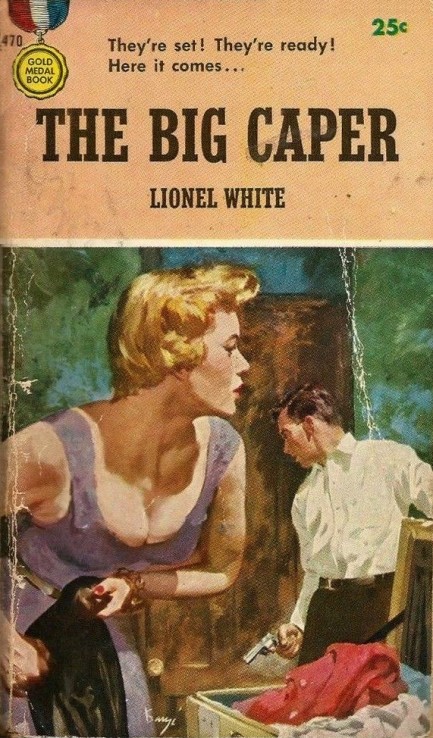ICRPG uses a system called Effort, as in "this task requires more than the flip of the switch so let's see how far you get this round". Damage is effort, each round you see how much closer you've pushed the enemy toward Deadsville. Well Runehammer thought that such an interesting system should get used more often. Now, all complicated tasks have "Hit Points", and you must defeat them using the relevant skill and Effort. Now, the lock on the doorknob isn't going to be attacking you back so "where is the drama" you ask? It's in the form of a TIMER.
A Timer is usually a d4, but it could be a d6. The GM rolls it and the players then have that many rounds to do the task before SOMETHING HAPPENS. What is it? Only the GM knows for sure and it's enough to make you pee your britches.
You don't have to use a Timer all of the... er... time, either. Suspense has to be a roller-coaster, with ups and downs for contrast. If every moment has suspense, players will become numb to it. Just pull it out every time you want the players to get worried.
Now Effort is rated by a specific die type: d4 for Basic Effort, d6 for Weapons or Tool Effort, d8 for Magic or Super-Tech Effort, d10s are skipped as they are used solely for Loot Tables, and d12s as ULTIMATE EFFORT!
Wait, all weapons deal d6 damage?
Yup.
But That's NOT REALISTIC?
What is? Take D&D for example and the humble spear. In reality, the spear was one of the most common weapons on the battlefield. It was easy to make, cheap, keeps your opponents out of reach, and could be mastered by an unskilled user. But in D&D, those extra attributes aren't calculated. As a result, every player (that I have witnessed) picks a Longsword, a Rapier, or a Two-Handed weapon because they deal the most damage for the character type. Using a spear is a detriment to the character.
Well ICRPG says "It doesn't matter anymore, use what you like". I LOVE this. My players can now use whatever type of weapon that makes them look cool (Rule of Cool) and all I have to do is add a few tags. They can even make up weapons. Putting them in ICRPG is a snap. What's that? You want fold-away short-swords that can unfold into climbing picks like Rayla's in The Dragon Prince?
Okay so that's Shadow Elf Butterfly Swords: d6 Effort; Tags: Alien, Climbing, Concealed, Fast, Light, and Sturdy.
That took me about 30 seconds and I don't have to worry about weapon balance.
So Effort shouldn't be looked at as Damage. It's a measure of progression to a specific goal this round. Hit points are the length of the track and Effort is the speed at which you run it. And the Hit Points say a weapon should complete it's task against an single-heart opponent in two rounds with two solid hits, maybe a little longer. Picking the lock on a one-heart chest is going to take 3 rounds minimum unless you score a crit.
Also, in the Movie-verse, is there a visible difference in damage between Subotai's sword and Conan's? How about the German Machine Guns, versus the American Machine Guns? When there was a difference, it was specifically called out. Guns deal the same damage but when Arnold grabs the Bazooka... The Movie-verse doesn't care that a .45 caliber bullet does more damage than a 9mm. You go bang, they fall down. While debating the merits of weapon details can be fun, it really has no place in fiction. The objects aren't the point of the tale, the characters are.
Note: Hankerin hates the idea of balance. But there is such a thing as good game balance: The balance of player's options so they don't feel that their decisions in character creation led them to make a boring, useless, or inept character, unless that's what they intended. No one should be penalized for wanting to look cool.
So in short, if I want to play a wandering Spear Master, in ICRPG I have the same shot in the spotlight as Grunter the Unwashed and his Clobberrock mk Many. In D&D, not so much.





